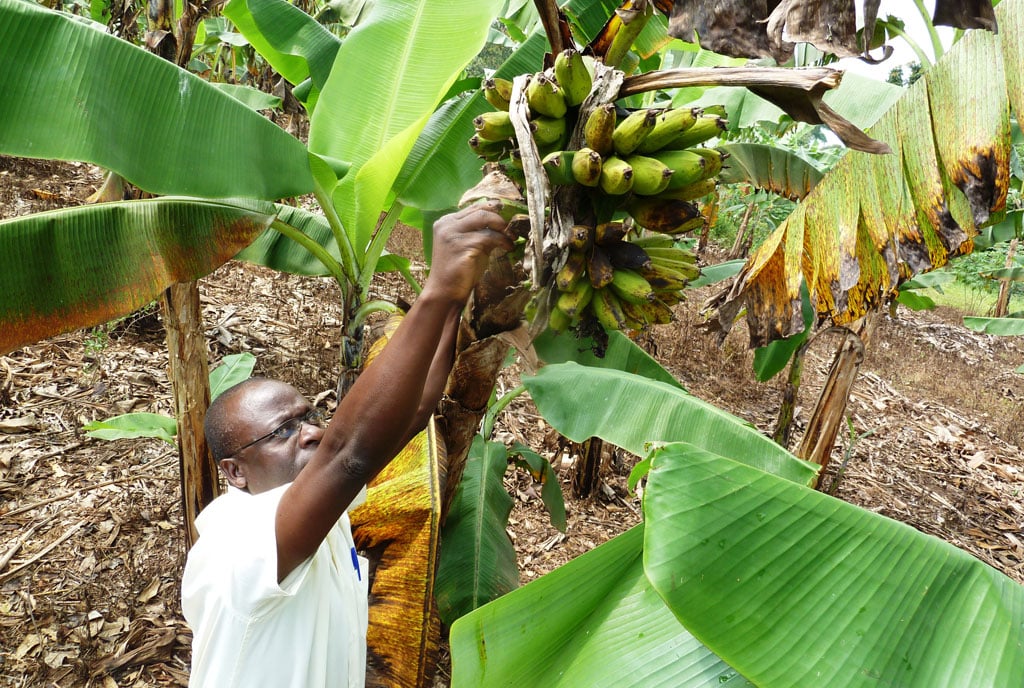Prime
Food prices shoot up in Tooro as drought hits hard

Maize at a store in Uganda. Food prices have surged in some parts of the country. PHOTO/FILE/MICHAEL KAKUMRIZI
What you need to know:
- Vendors say prices of different agricultural products continue to rise daily due to their scarcity and high demand.
The prolonged dry spell in Tooro and Rwenzori sub-regions has led to a significant increase in the prices of various crop varieties.
The agricultural products experiencing price hikes are tomatoes, onions, Irish potatoes, watermelon, eggplant, cabbage, carrots, and green peppers.
Conversely, staple crops like matooke and beans have seen reduced prices during their peak season.
Ntoroko District, situated in the cattle corridor, has been particularly hard hit.
Here, a majority of the population are pastoralists. The dry spell, which began in May, has led to the drying of most gardens. Only a few farmers were able to irrigate their crops and are now benefiting from selling their harvests at higher prices.
Consequently, residents in areas such as Rwebisengo, Butungama, and Kanara sub-counties are now sourcing their food from Kabarole and Fort Portal due to the scarcity and high prices in local markets.
In Kabarole District and Fort Portal City, a sack of 100kgs of Irish potatoes, which was previously sold at Shs100,000, has now increased to between Shs170,000 and Shs200,000. Each basin costs Shs 25,000.
For onions, a basin is now sold between Shs40,000 and Shs50,000 from the previous Shs30,000. A sack goes for Shs180,000 at farm gate price.
A crate of tomatoes costs between Shs100,000 and Shs125,000 from the farmer, up from Shs60,000. A basin costs Shs25,000.
Watermelons are priced at between Shs5,000 and Shs12,000, depending on the price.
In Kasese District, a basin of Irish potatoes has risen from Shs15,000 to Shs30,000. Similarly, a basket of tomatoes now costs Shs180,000, up from Shs120,000. Onions are now priced between Shs50,000 and Shs70,000 per basin, compared to between Shs30,000 and Shs50,000 earlier.
Violet Kabugho, a dealer in tomatoes, onions, and spices, attributes the price changes to the harsh weather conditions adversely affecting crop yields.
However, the situation contrasts sharply for matooke dealers. Prices for a bunch of matooke have decreased to Shs4,000 from the previous range of Shs10,000 to Shs40,000.
Mr Attorney Tusiime, a farmer in Rwebisengo, said at the beginning of the planting season, he planted about half an acre of tomatoes but the garden was severely affected by the dry spell, resulting in a much lower harvest.
“Before I started harvesting, I had many bookings from clients, but because my harvests were less, I decided to increase the price to recover the money I invested during planting. I am now selling a basin for Shs15,000, whereas previously we sold it for Shs10,000,” he explained.
Traders worried
Ms Anent Kusiima, a grocery owner at Rwebisengo market, said prices of different agricultural products continue to rise daily due to their scarcity and high demand.
“Farmers’ gardens have been affected by the ongoing dry spell, leading them to sell their produce at high prices. For us to make a profit, we have to increase our prices as well. I now sell 3 carrots for Shs2,000, whereas previously they were Shs1,000. Similarly, we sell 2 green peppers for Shs1,000, while farmers sell us 3 for Shs1,000,” she said.
Farmers suggest that to maintain large-scale production, they need to adopt irrigation methods during dry spells and call on the government for support.
Mr Abel Abaho, a farmer from Butungama Sub-county, noted that the farmers who succeeded in reaching the harvesting stage were those who managed to irrigate their gardens
“The government needs to support farmers with irrigation kits to enable us to continue producing throughout the season. If the dry spell extends for more months, we will face hunger because we will have no food,” he said.
Mr Abaho explained that the current challenge is that the government’s support is provided through a micro-irrigation scheme, requiring farmers to co-fund 25 percent of the costs while the government covers 75 percent. This co-funding is expensive and unaffordable for the majority of farmers.




